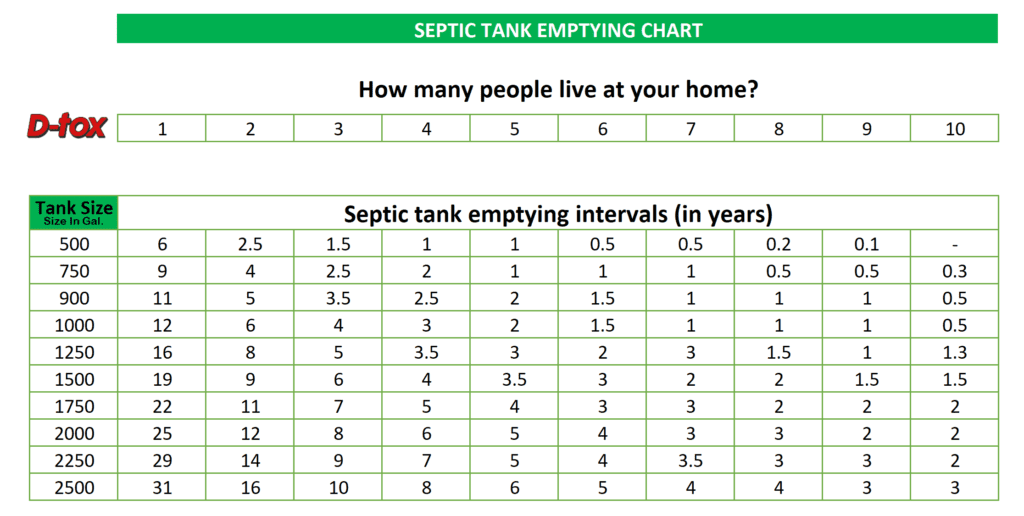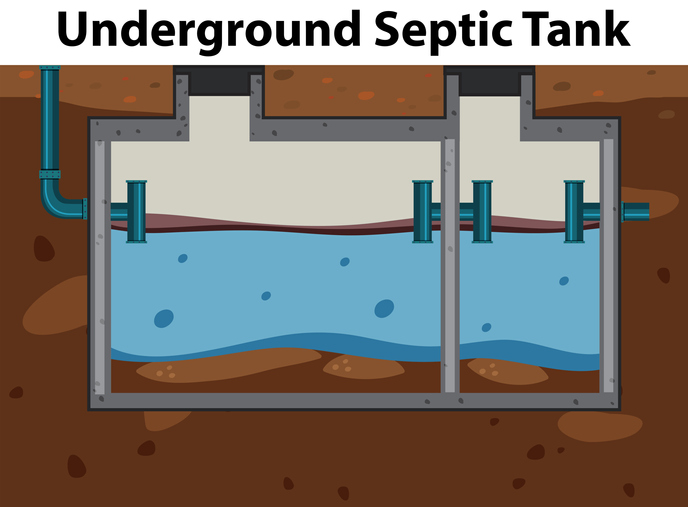When it comes to septic tank maintenance, timing is key. Knowing the best time of year to empty your septic tank can save you from potential headaches and costly repairs down the line. In this article, we’ll explore the different factors to consider when determining the ideal timing for septic tank pumping, ensuring that you make the most informed decision for your home’s wastewater management.

Factors to Consider
Size of the Septic Tank
The first factor to consider when determining the best time of year to empty your septic tank is the size of the tank itself. Septic tanks come in various sizes, ranging from small residential tanks to larger commercial tanks. The size of your septic tank will impact how frequently it needs to be emptied. Smaller tanks may require more frequent emptying, while larger tanks can accommodate more waste before needing to be emptied.
Number of Occupants
The number of occupants in your household is another important factor to consider. More occupants means more wastewater, which in turn means a faster fill-up of your septic tank. If you have a large family or frequently have guests staying over, you may need to empty your septic tank more often to ensure it does not become overwhelmed.
Frequency of Use
Another key consideration is the frequency of use of your septic system. If you rely heavily on your septic system, such as doing frequent loads of laundry, running the dishwasher daily, or having multiple daily showers, the tank will fill up faster. In such cases, you may need to empty your septic tank more frequently to prevent any backups or damage to the system.
Weather Conditions
The weather conditions in your area can also play a role in determining the best time to empty your septic tank. In areas with freezing temperatures, it is important to avoid emptying the tank during winter when the ground is hard and frost-covered. This can make it difficult for the pumping equipment to access the septic tank, leading to potential damage. Additionally, heavy rain in the spring or fall can saturate the soil and make it more challenging for the tank to properly absorb and treat the wastewater.
Type of Waste
Lastly, the type of waste that goes into your septic tank can affect the frequency of emptying. For example, households with a garbage disposal may produce more solid waste that can quickly fill up the tank. Additionally, if there are certain types of waste, such as chemicals or excessive amounts of grease, being disposed of in the septic system, it can disrupt the natural balance of bacteria and increase the need for more frequent pumping.
Spring
Advantages of Emptying in Spring
Spring can be an ideal time to empty your septic tank for several reasons. Firstly, after the long winter months, there may be a buildup of waste in the tank that needs to be removed to ensure proper functioning. By emptying the septic tank in the spring, you can start the season with a fresh and clean tank, ready to handle the increased water usage that often comes with warmer weather.
Another advantage of emptying in the spring is the softer ground. The thawing soil allows for easier accessibility to the septic tank, making the pumping process more efficient. This can save you time and potentially reduce the cost of the service.
Disadvantages of Emptying in Spring
One potential disadvantage of emptying your septic tank in the spring is the timing in relation to heavy rainfalls. Spring often brings rainstorms, and if the ground is already saturated, it may be challenging for the tank to properly absorb and treat the wastewater. Additionally, if the pumping company is in high demand during the spring, it may be more difficult to schedule a convenient time for the emptying service.

Summer
Advantages of Emptying in Summer
Summer can also be a favorable time to empty your septic tank. With warmer temperatures and increased outdoor activities, it is common for households to use more water during this season. By emptying the tank in the summer, you can ensure it has enough capacity to handle the additional water usage and prevent any potential issues caused by an overloaded system.
Another advantage of emptying in the summer is the opportunity for regular maintenance and inspection. By scheduling the emptying service during a period when your septic system is functioning properly, professionals can also inspect the tank and identify any potential problems or needed repairs. Addressing these issues early on can save you from costly repairs down the line.
Disadvantages of Emptying in Summer
One potential disadvantage of emptying your septic tank in the summer is the scheduling challenge. Many people also choose this time of year for maintenance and emptying services, so it may be more difficult to secure an appointment with a septic pumping company. Additionally, summer can be a busy season with vacations and other commitments, making it harder to coordinate a time that works well for you.
Fall
Advantages of Emptying in Fall
Fall is another favorable season for emptying your septic tank. With the summer activities winding down and before the arrival of freezing temperatures, fall provides a prime opportunity for maintenance and emptying services.
One advantage of emptying in the fall is preparing for the potential increase in water usage during the holiday season. Many households experience a surge in guests and activities that put a strain on the septic system. By emptying the tank in the fall, you can ensure it has enough capacity to handle the additional wastewater generated during these festive times.
Disadvantages of Emptying in Fall
A potential disadvantage of emptying your septic tank in the fall is the risk of heavy rainfall. Fall can bring storms and wet weather, which can saturate the ground and make it challenging for the tank to properly absorb and treat the wastewater. It’s important to consider the weather forecast and plan accordingly to ensure optimal results.

Winter
Advantages of Emptying in Winter
Winter can be a less favorable time to empty your septic tank due to freezing temperatures. However, if necessary, there can still be advantages to scheduling the service during this season. One advantage is that septic pumping companies may have less demand during the winter, making it easier to secure an appointment at a time that works for you. Additionally, emptying the septic tank before the ground freezes can prevent any potential damage that could occur if the tank becomes too full and freezes, leading to cracks or ruptures.
Disadvantages of Emptying in Winter
The primary disadvantage of emptying your septic tank in winter is the risk of frozen ground. If the ground is frozen, it becomes much harder for the pumping equipment to access the tank, potentially causing damage to the system. It’s important to consider the local climate and consult with professionals who are experienced in winter septic maintenance before scheduling any services during this season.
Other Factors to Consider
Signs of a Full Septic Tank
It’s important to be aware of the signs that indicate your septic tank needs to be emptied. Some common signs of a full septic tank include slow drains, gurgling sounds from the plumbing, foul odors, and sewage backups. If you notice any of these signs, it’s crucial to schedule an emptying service promptly to avoid potential damage to your septic system.
Cost Considerations
The cost of emptying your septic tank can vary depending on factors such as the size of the tank, the location, and the season. It’s important to consider the cost implications and budget for regular septic tank maintenance and emptying. While it may require an upfront investment, proper maintenance can save you from more expensive repairs or even a full system replacement down the line.
Maintenance Recommendations
In addition to regular emptying, there are other maintenance recommendations to keep your septic system in optimal condition. These include avoiding flushing non-biodegradable items, limiting the use of harsh chemicals, and being mindful of the amount of water used. Proper maintenance and care will not only extend the lifespan of your septic system but also ensure its efficient and reliable functioning.
In conclusion, the best time to empty your septic tank depends on various factors such as the size of the tank, the number of occupants, the frequency of use, weather conditions, and the type of waste. Each season has its advantages and disadvantages, so it’s essential to consider these factors and choose a time that aligns with your specific circumstances. Regular maintenance, timely emptying, and being aware of the signs of a full tank are crucial to keeping your septic system in optimal condition.

